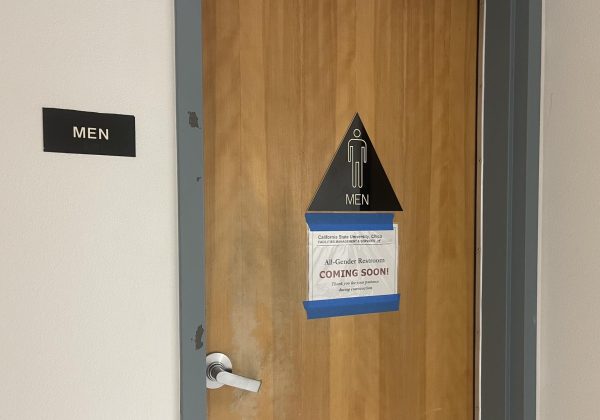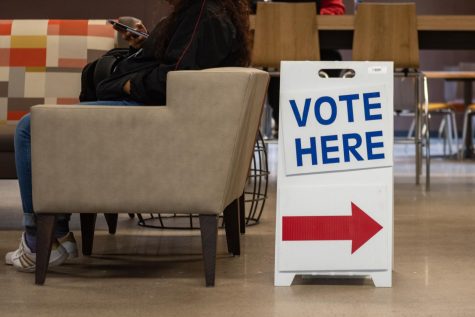Equality Act ignites opposing ideals
Photo by Harry Quan at Upsplash.
The House of Representatives passed the Equality Act on Feb. 25, expanding the language of the Civil Rights Act to extend federal protections against LGBTQ+ discrimination by a vote of 224-206.
Some in congress aren’t convinced the bill is the right path forward.
Sen. Joe Manchin, D-W.V., tweeted, “I strongly support equality for all people and do not tolerate discrimination of any kind, but I am not convinced that the Equality Act as written provides sufficient guidance to the local officials who will be responsible for implementing it.”
Others, like U.S. Secretary of Transportation Pete Buttigieg, were much more enthusiastic.
“Gender identity and sexuality should never stand between a person and a home, or a job, or equal justice under the law,” Buttigieg tweeted. “We all have a right to dignity and equal treatment.”
Chico councilmember Alex Brown, herself a member of the LGBTQ+ community, is elated and relieved.
“It’s been a long time coming,” Brown said. “This legislation clarifies equity and inclusion for LGBTQ+ Americans and other communities, and I think [the Equality Act] is critical to us moving forward in ensuring equal opportunity for everybody in this country.”
The threat to religious freedoms is undoubtedly the most pronounced criticism of the Equality Act, opponents of which cite the Religious Freedom Restoration Act (1993).
The RFRA was intended to prevent the government from infringing on individuals whose religious preferences dictate denying services or products to others whom the religion denounces.
Brown isn’t convinced by the argument.
“To bring in a religious freedom argument based on sexual orientation and gender identity is a values-based discussion,” Brown said. “And the real question here is: Do LGBTQ+ communities deserve the same rights as other communities who have been historically marginalized and institutionally discriminated against?”
Doug LaMalfa, the Republican House representative for California’s 1st District, is appalled by the bill.
After voting against the act, LaMalfa said that it “is an attack on women and would unleash countless consequences, including erasing women’s rights and opportunities, eroding parental rights, and threatening the free exercise of faith so foundational to our freedom.”
LaMalfa said the Equality Act could revoke a doctor’s practice for refusing to comply with a patient’s will to undergo gender reassignment surgery, strip a parent’s custody for “objecting to their child’s desire to be ‘gender fluid,’” and allow boys and men to freely explore women’s restrooms.
Megan Garrison, a member of the LGBTQ+ community and LaMalfa constituent, found his comments preposterous.
“Anyone who experienced public high school should realize that a boy isn’t going to pretend to be a girl in order to peep on girls in the girls’ bathroom,” Garrison said. “It can be incredibly hard and scary to publicly announce gender presentation or sexual preference and still fit into society as our authentic selves.”
LaMalfa also criticized the Equality Act as rejecting “both common sense and science.”
Brown scoffed at LaMalfa’s assessment.
“This is the same embarrassingly predictable behavior by our representative in California’s 1st District that we have come to expect,” Brown said. “This is the same congressperson who introduced legislation that would absolutely destroy the health care rights of transgender Americans.”
Brown was also concerned about LaMalfa’s tactics to dismiss progressive LGBTQ+ legislation.
“Fearmongering to stall or oppose policy is not an effective leadership tool,” Brown said. “I think we, unfortunately, have come to expect a lack of logic and a lack of leadership from our representative in Congress. Especially when it comes to issues of equal protection, not only for LGBTQ+ communities, but for women, for people of color, and beyond.”
LaMalfa is up for reelection in 2022, and the LGBTQ+ community is eager to see him ousted.
“I’m hopeful that the people of California’s 1st District wake up to the fact that we have an incompetent, racist and transphobic leader representing us in Congress,” Brown said.
“More than that, I’m hopeful that legislation like the passing of the Equality Act, which I am also hopeful passes in the Senate, starts to shift our culture, as legislation has in the past, to being more inclusive and more accepting of people who identify as LGBTQ+.”
Senate Majority Leader Chuck Schumer, D-N.Y., has expressed his enthusiasm to bring the bill to the Senate floor, but has yet to announce that date.
Ian Hilton can be reached at [email protected]















